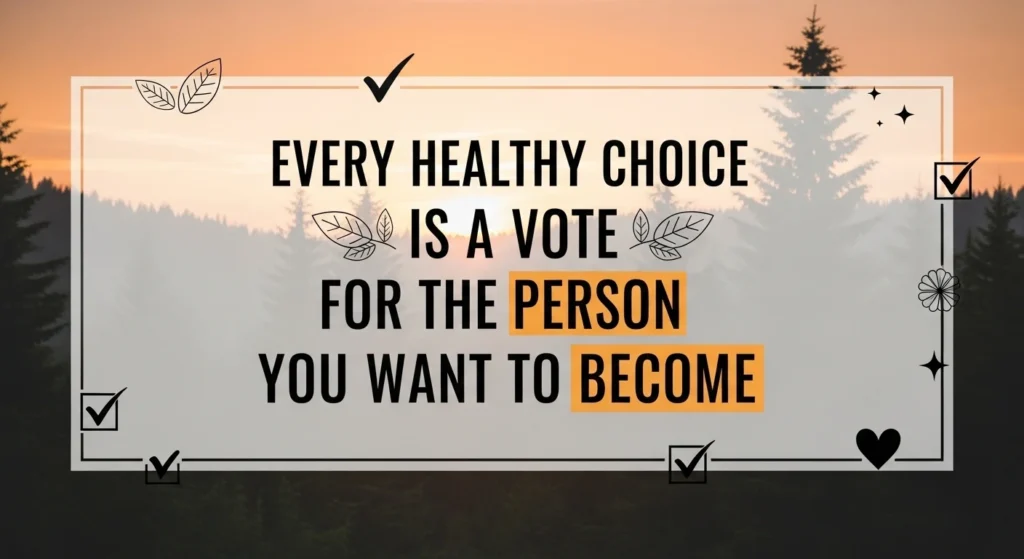Living a healthy lifestyle isn’t about perfection—it’s about progress. Whether you’re starting from scratch or trying to get back on track, this guide will help you build better habits, feel more energetic, and enjoy life more.
What Does “Healthy Lifestyle” Really Mean?
A healthy lifestyle means living in a way that supports your body, mind, and emotions. It’s about choosing habits that help you thrive, not just survive.
“Health is a state of body. Wellness is a state of being.” — J. Stanford
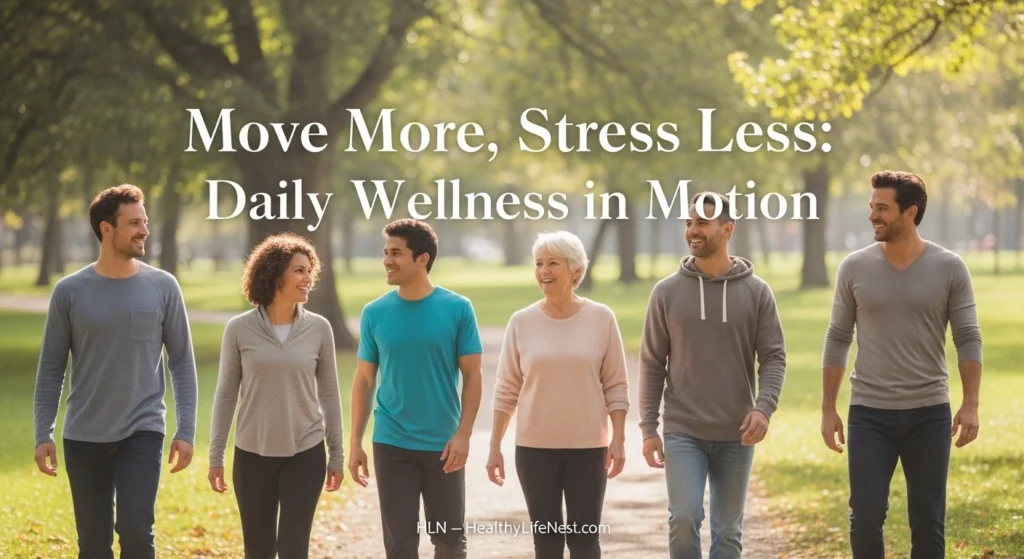
Key Areas of a Healthy Lifestyle
| Area | What It Covers |
|---|---|
| Physical Health | Diet, exercise, sleep, hydration |
| Mental Health | Stress, emotions, mindfulness |
| Social Health | Relationships, family, community |
| Spiritual Health | Purpose, peace, values |
1. Eat Real Food, Not “Food-like” Substances
Focus On:
- Fresh fruits & vegetables
- Whole grains
- Healthy fats & lean proteins
Limit:
- Sugary drinks
- Packaged snacks
- Fast food
| Meal | Healthy Choice |
|---|---|
| Breakfast | Oats, berries, almonds |
| Lunch | Grilled chicken with greens |
| Snack | Yogurt or apple slices |
| Dinner | Lentil soup and brown rice |
📝 Note: Chew slowly. Your stomach doesn’t have teeth.

Read more about.
2. Move Your Body Daily
You don’t need fancy workouts. Just move!
Try:
- Walking after meals
- Stretching in the morning
- Dancing at home
- Using stairs instead of elevators
| Activity Level | Suggested Time Per Week |
|---|---|
| Moderate | 150 minutes |
| Vigorous | 75 minutes |
| Strength Training | 2 sessions |
“Those who think they have no time for exercise will sooner or later have to find time for illness.” — Edward Stanley
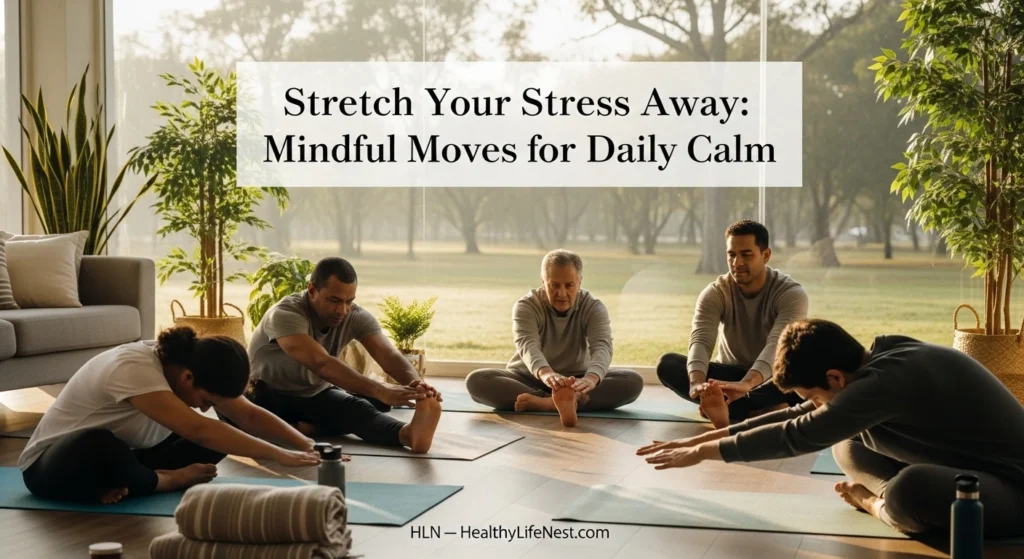
Read More About
3. Prioritize Sleep
Sleep is as important as food.
Sleep Tips:
- Same bedtime every night
- No screens 1 hour before sleep
- Cool, dark room
| Age | Ideal Sleep Duration |
|---|---|
| Adults | 7–9 hours |
| Teens | 8–10 hours |
| Seniors | 7–8 hours |
⚠️ Warning: Poor sleep affects hormones, immunity, and mood.
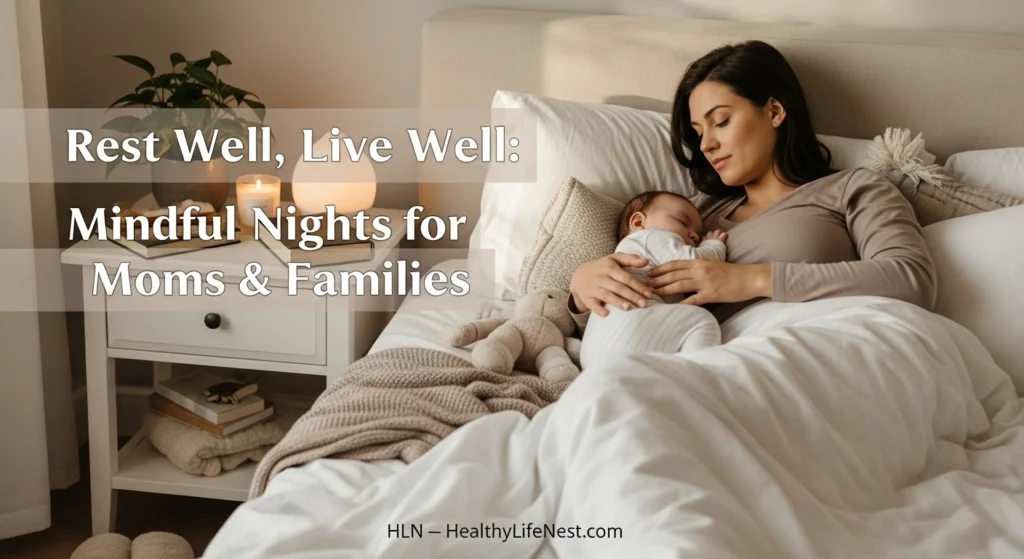
4. Stay Hydrated
Your body is over 60% water. Keep it happy.
- 8–10 glasses daily
- Herbal teas count
- Avoid sugary sodas
💡 Tip: Carry a water bottle with you at all times.

5. Manage Stress Like a Pro
Stress is normal, but chronic stress is harmful.
Relief Techniques:
- Meditation
- Deep breathing
- Journaling
- Nature walks
“Almost everything will work again if you unplug it for a few minutes… including you.” — Anne Lamott
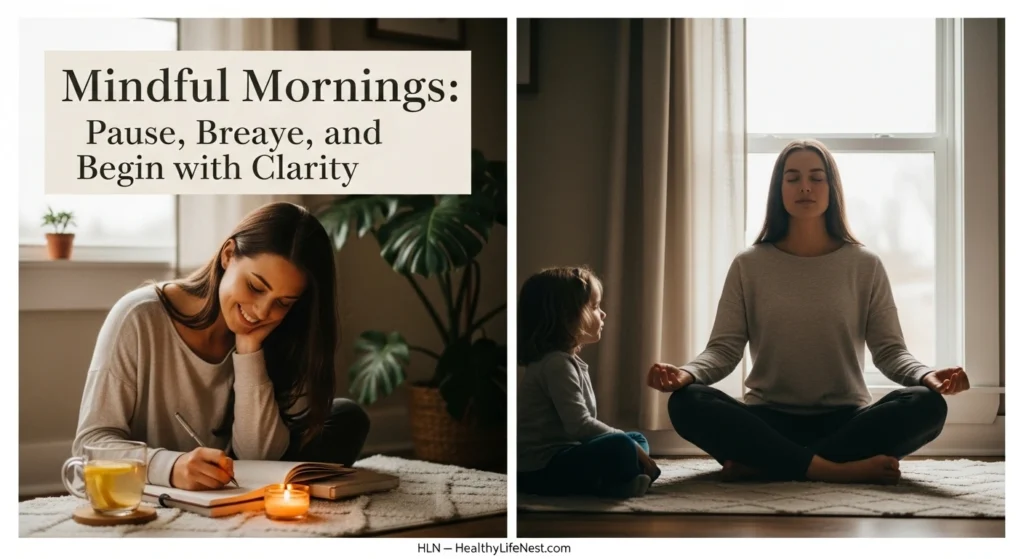
Read More About
6. Build Strong Relationships
Ways to Connect:
- Daily check-ins with family
- Eat together without phones
- Join a local group or class
🤝 Note: Quality of relationships matters more than quantity.
7. Ditch the Harmful Stuff
Limit:
- Smoking
- Excessive alcohol
- Processed food
- Negative self-talk
👥 Join support groups if you’re struggling to quit harmful habits.

8. Get Regular Check-Ups
Even if you feel fine, check in with your doctor annually.
Get These Checked:
- Blood pressure
- Blood sugar
- Cholesterol
- Mental wellness
🩺 Point to be noted: Many diseases show no early symptoms.
9. Practice Gratitude & Mindfulness
- Write 3 things you’re grateful for
- Pause before reacting
- Stay present
🌱 Note: Gratitude rewires your brain for joy and calm.
10. Live With Purpose
Purpose gives direction. It’s not always about big goals.
Ask:
- What makes me feel alive?
- What do I enjoy doing?
- Who or what matters most to me?
“When you know your why, your what becomes more meaningful.”

11. Practice Digital Wellness
Too much screen time is draining.
Try:
- No screens 1 hour before bed
- Unfollow accounts that make you feel bad
- Turn off non-essential notifications
📵 Digital clutter = mental clutter.
12. Nature Heals
Time outdoors improves mood and immunity.
- Morning walk
- Gardening
- Watching the sunset
- Even 10 mins a day helps

13. Build Routines, Not Rigid Rules
Health isn’t a 30-day challenge. It’s lifelong.
- Morning stretch
- Weekly meal prep
- Wind-down rituals at night
14. Watch Your Finances
Money stress affects sleep and mood.
Tips:
- Track spending
- Save a little each month
- Avoid lifestyle inflation
📝 Simple living = stress-free living.
15. Listen to Your Body
| Signal | Possible Meaning |
|---|---|
| Headaches | Dehydration or eye strain |
| Cravings | Emotional or nutritional imbalance |
| Low energy | Lack of sleep or nutrients |
16. Age-Smart Wellness
| Age | Focus Areas |
|---|---|
| 20s–30s | Hormones, habits, mental balance |
| 40s–50s | Stress, heart, bones |
| 60+ | Joints, brain health, fall safety |
17. Healthy Work-Life Balance
- Take micro-breaks
- Bring healthy snacks
- Stretch between meetings
- Avoid late-night work
18. Mental Health Days Matter
Signs you need one:
- Burnout
- Brain fog
- Overwhelm
- Emotional exhaustion
Take the day. Breathe. Do nothing. Recharge.

19. Sleep Hygiene = Better Mornings
- Avoid caffeine late
- Use blackout curtains
- No late-night snacking
🌙 Even 1 hour of missed sleep can disrupt your day.
20. Busting Health Myths
| Myth | Reality |
|---|---|
| “Healthy = expensive” | Many simple foods are cheap |
| “Exercise = gym only” | Home workouts work too |
| “No pain = no gain” | Gentle is just as effective |
21. Self-Care Is Basic Hygiene
Try:
- Saying “no” when needed
- Cleaning your space
- Taking a walk alone
- Putting your phone away
“Self-care is not indulgence. It is discipline.”
22. Support Systems Matter
Community gives life color.
- Join a walking group
- Check in with friends
- Volunteer locally

23. Follow the 80/20 Rule
Be healthy most of the time. Leave room for life.
80%: Clean eating, sleep, movement
20%: Ice cream, late nights, Netflix
24. Track Progress Gently
- Keep a mood/energy journal
- Use a simple habit tracker
- Take monthly pictures (not weight)

Final Words: You Deserve to Feel Good
Start small. Be kind to yourself. Don’t aim for perfection—aim for progress.
“Your health is an investment, not an expense.”
